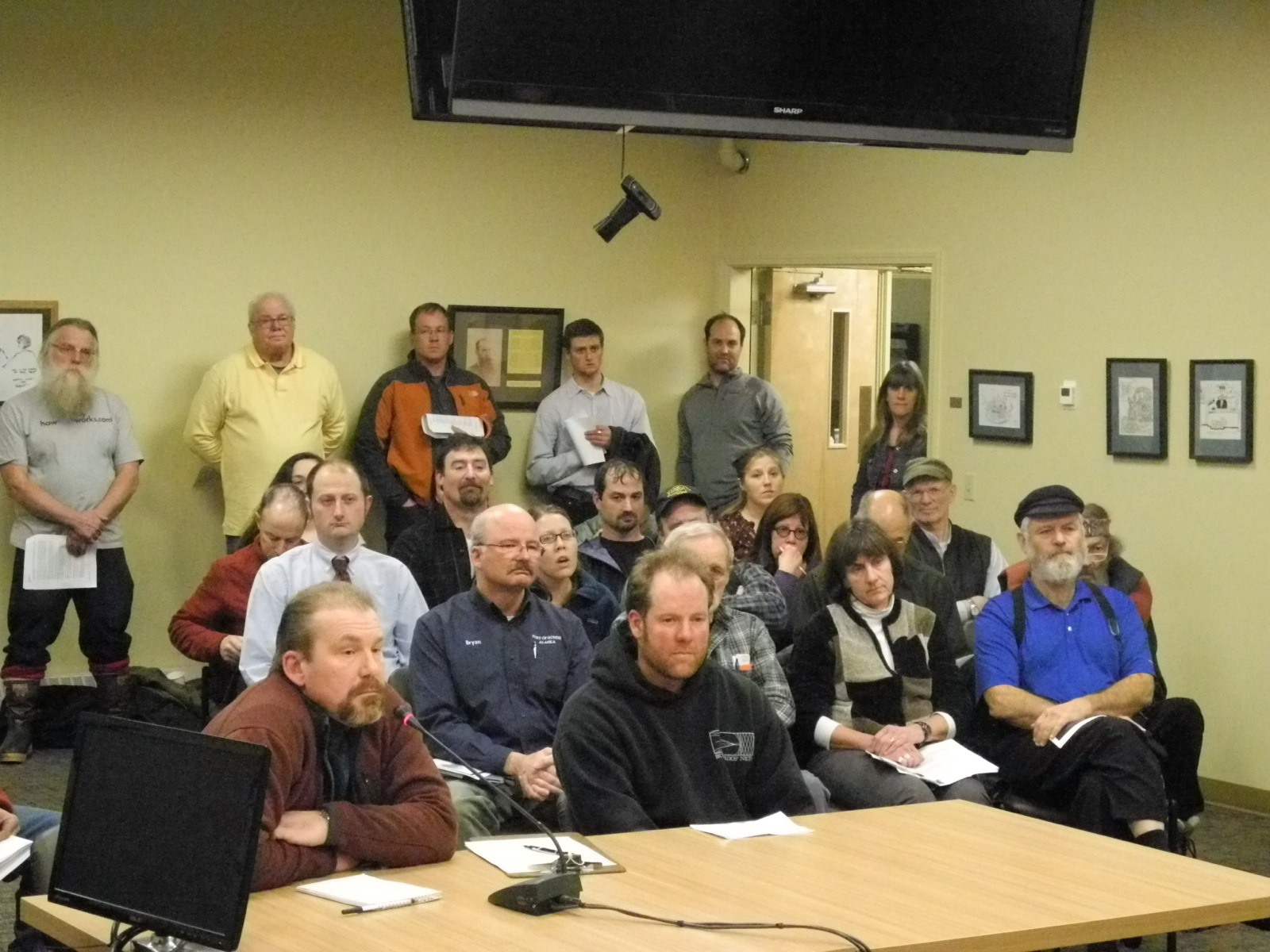The Homer City Council waded into statewide fisheries politics at its Monday night meeting, but it got a lot of support from the Homer salmon drift gillnet fleet to do so. In a unanimous vote, the council passed a resolution urging — “strongly” urging after an amendment — the Board of Fish to reject three proposals that if passed would move the fleet north.
“These are a direct threat to the economic well being of this community,” said driftnet fisherman Ian Pitzman in public testimony. “I think it’s time for this community to stand up and say no.”
At issue are Proposals 138, 139 and 149, all by Matanuska-Susitna Borough fishing interests, that would restrict the drift gillnet sockeye salmon fleet to fishing in the Expanded Kasilof and Expanded Kenai Corridors near the Kenai and Kasilof rivers.
The fleet traditionally has fished in Area 1 in lower Cook Inlet, between the Kasilof River and Anchor Point. The upper inlet corridors are north of the Kasilof River. If the proposals pass, Homer drift fishermen said they would move their boats to Kenai and Kasilof, and wouldn’t return to Homer between openings.
Mat-Su fishing groups maintain that the lower-inlet drift fleet intercepts salmon heading to spawning grounds in the Susitna River drainage and that this has had an impact on fishery resources there.
In a letter to council members, Homer fisherman Frank Mullen cited a study done by the United Cook Inlet Drift Association and others analyzing impacts on Mat-Su salmon. Mullen said Susitna salmon are widely intermixed throughout the inlet and fishing corridors are not effective in reducing interception of those fish. He also noted a habitat problem in the Susitna drainage, with pike infesting 14 out of 24 salmon spawning lakes.
Nine fishermen or people supporting fishermen spoke Monday night, including Mullen. Mullen said there are about 500 drift permits in the Cook Inlet fleet and about 300 of those are in the Homer and Kachemak Bay area.
“It really is an important economic driver for the coastal communities and all around,” Mullen said.
Pitzman said that with fishing grounds nearby, Homer based drift fishermen can refuel and resupply in Homer between openings. Each boat might spend $10,000 a season at Homer businesses yearly, Pitzman said. They also do boat repairs and can spend time with their families. “It’s nice to have that time in home port,” he said.
Matt Clark, deputy harbormaster and a former commercial fisherman, also spoke of the financial impact of the drift fleet in Homer. “Commercial fish ownership is an economic engine. These proposals threaten the traditional fishing grounds of Area 1,” he said. “There is a great spin-off economically to local businesses. I think it’s right our city show support for this resolution.”
The council did just that. Resolution 14-019 had been on the consent agenda, but council member David Lewis, its sponsor, pulled it to add some amendments suggested by Mullen that added several whereas clauses saying why the proposals would not be effective. Lewis also added “strongly” to a line that said “the Homer City Council opposes” the Board of Fish proposals.
The Board of Fish meets Jan. 31 to Feb. 14 in Anchorage.


